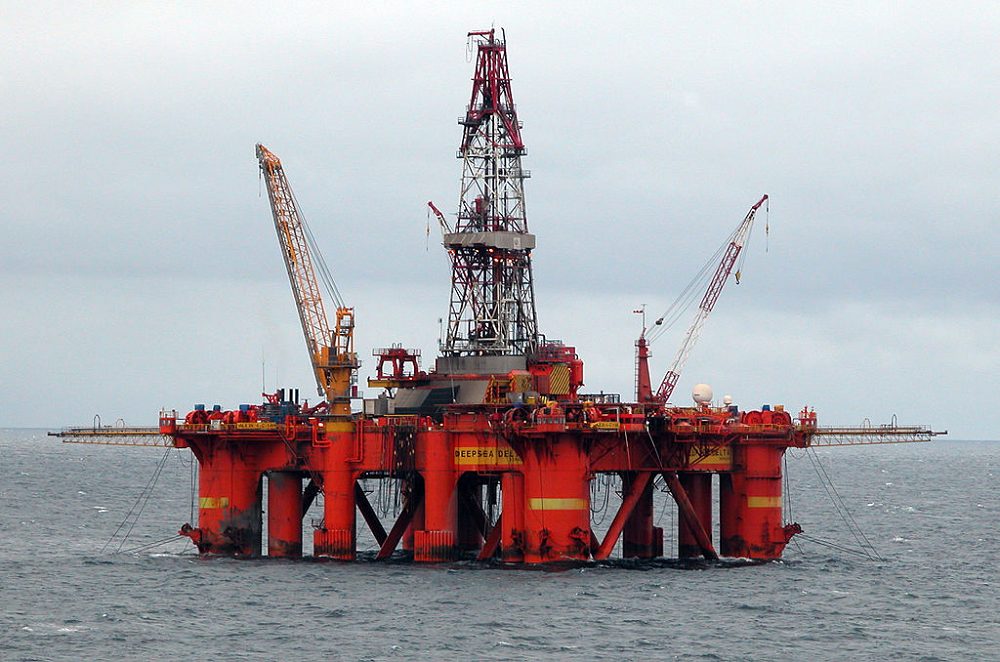The UK offshore oil and gas industry has committed to halving greenhouse gas emissions from its operations by 2030.
This comes as the nation’s fossil fuel sector aims to transition to a net-zero emissions basin by 2050, as part of its commitment to combat climate change and help decarbonise the global economy.
As part of the updated roadmap, the UK’s Continental Shelf is looking to deliver a 90% emissions reduction by 2040.
A report published by industry body Oil and Gas UK (OGUK), titled The Pathway to Net Zero: Production Emissions Targets, outlines how targets will be achieved through changes to operations, progressive reductions in flaring and venting, and major capital investment programmes aimed at using electricity rather than gas to power offshore facilities.
OGUK CEO Deirdre Michie OBE admitted the coronavirus pandemic and low oil and gas prices have had a “devastating impact on the UK’s offshore oil and gas industry”.
“Given the limited impact that the severity of the lockdown has had on global emissions, it is clearer than ever that we need a fair, inclusive, and sustainable transition towards climate targets,” she added.
“We need a green recovery which supports jobs, supply chain companies and energy communities.”
UK oil and gas sector’s commitment to a ‘green recovery’
The latest targets would remove more than nine million tonnes of CO2 equivalent greenhouse gas emissions from UK operations over the next decade, which OGUK says would be “the same as taking nearly two million cars off the road for a year”.
Michie confirmed Britain’s oil and gas sector is still very much committed to “addressing the challenge of climate change”, as OGUK outlined in its Roadmap 2035 report published last year.
She believes the industry will play its part by reducing its emissions and “using its skills to develop the solutions that will be needed to make a significant contribution to the UK’s overall targets”.
“A transformational sector deal could help unlock the full potential of this industry to support a green recovery and we’re delighted to confirm that we are now in formal discussions about it,” she added.
“With a clear pathway to becoming a net-zero basin by 2050 and with support from governments and regulators, we can protect domestic energy supplies, jobs and communities whilst embracing the opportunities which will come from being at the forefront of delivering a low-carbon economy.”

The UK government’s minister for energy Kwasi Kwarteng described the sector’s commitment to halving operational emissions over the next decade as a “welcome step” for an industry that has a “vital role to play” as part of the nation’s energy transition.
“The UK government will continue to work tirelessly with all partners to deliver a dynamic sector deal,” he added.
“This will further support the industry in becoming more sustainable, as we work towards achieving net-zero emissions by 2050.”
Opportunity to develop carbon-cutting technologies
OGUK believes that, as part of the efforts to decarbonise the economy, the UK can take advantage of its “skills and infrastructure to develop critical carbon-cutting solutions such as industrial-scale carbon capture usage and storage (CCUS), and the use of hydrogen for heating and heavy transport”.
Suzie Ferguson, carbon capture technical lead at project management, engineering and consultancy firm Wood, believes the landscape of the energy industry is “rapidly changing” and seeking practical ways to decarbonise the existing assets and unlock the potential of renewable energy have become “key drivers”.
“Wood is already supporting new and existing energy customers with major projects to dramatically cut emissions and improve the efficiency of their assets by delivering advanced and integrated carbon capture and storage solutions,” she added.
“CCUS can safely contain more than 90% of the carbon dioxide emissions produced from the use of fossil fuels in power plants and from industrial processes such as steel and cement manufacture.
“This technology can even be used to capture carbon from the air, from the combustion of biomass or waste, and store it safely underground as a real-time carbon offsetting.
“As a solution, CCUS not only prevents emissions entering the atmosphere but could provide a shift change in the UK’s energy economy.”






